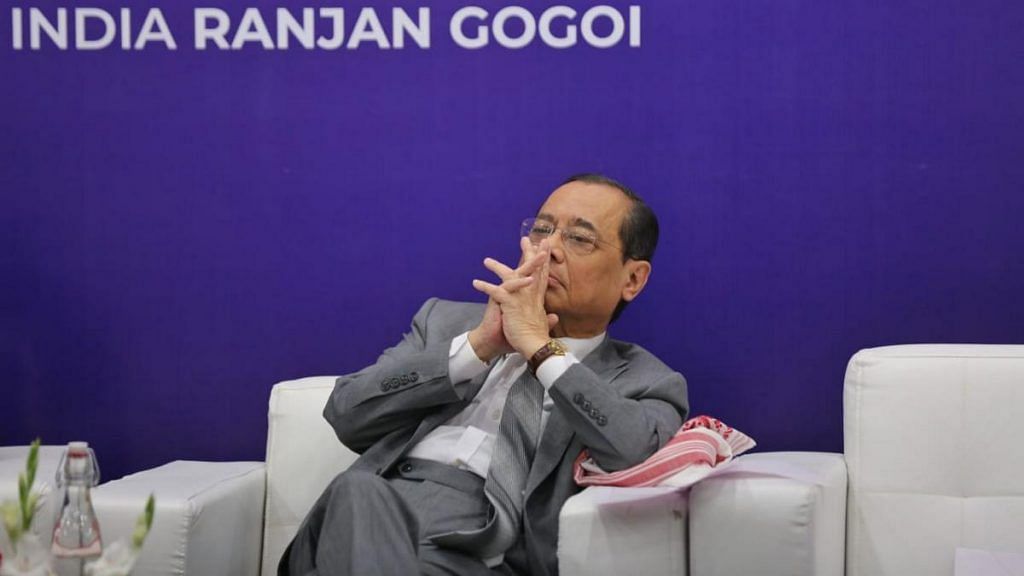New Delhi: Armchair commentators are responsible for the “distorted picture” presented on the National Register of Citizens (NRC), Chief Justice of India (CJI) Ranjan Gogoi said Sunday.
“National discourse has seen the emergence of armchair commentators who present a distorted picture,” he stated, addressing the launch of a book titled ‘Postcolonial Assam 1947-2019’ by documentary maker and author Mrinal Talukdar.
“Armchair commentators and their vile intentions let rumour mills flourish. Assam and its development agenda have been victims of such commentators,” said Gogoi, adding that the “emergence of social media… has fuelled these double-speaking commentators”.
“They launch tirades against democratic institutions,” he added.
Gogoi, who was born in Assam, is the first judge from the northeast to serve as CJI. His term ends 17 November.
The NRC is a controversial exercise meant to identify illegal immigrants from Bangladesh currently living in Assam, an emotive issue in the state for decades.
Its final draft was published 31 August and reportedly left out around 19 lakh applicants, who, however, have the option to appeal their exclusion.
Talking about the exclusions, Gogoi said the “NRC was a base document for the future”, and the numbers did not matter.
“Assam NRC is not a document of the moment… But a base document for the future. A document on which we can determine future claims,” he added. “Nineteen lakh or 40 lakh is not the point.”
Speaking at Sunday’s event, Gogoi said the NRC was “neither a new nor a novel idea”. He said the current exercise was an attempt to allay rumours and give some “certainty on the degree of illegal immigrant influx”.
Also read: Clamour for NRC not different from the notion that more Muslims mean threat to Hindu society
‘Callous reporting by media’
The CJI, who has presided over the Supreme Court bench dealing with the NRC issue and received continuous reports while the final list was being prepared, also accused the media of launching a “tirade against democratic institutions”.
“Over the decades, there was enormous amount of guesswork about illegal immigration, which in turn fuelled panic of vicious cycles,” he said.
“Callous reporting by few media worsened the situation. The current Assam NRC attempts to give some degree of certainty on illegal influx,” he added. “This is neither a new or novel idea and has found expression in 1951.”
The speech by the CJI came soon after a United States-based not-for-profit organisation Avaaz released a report that said violent hate speech targeting ethnic and religious minorities in Assam was viewed at least 54 lakh times on Facebook during the preparation of the NRC.
The Avaaz report, titled ‘Megaphone for Hate’, said Bengali Muslims in particular were targets of hatred on Facebook, with content referring to them as “criminals”, “rapists”, “terrorists”, “pigs”, and “dogs” being shared over 1,00,000 times.
It was in December 2014 that a bench comprising Justices Ranjan Gogoi & Rohinton Fali Nariman mandated the government of India to complete the finalisation of the NRC by 1 January 2016. However, it was only published this year.
On 19 October, a bench led by CJI Gogoi directed the Centre and the Assam government to transfer NRC coordinator Prateek Hajela “forthwith” to Madhya Pradesh for the maximum period possible, without stating any reason.
Sources had earlier told ThePrint that Hajela had requested a transfer in view of threats he had received in the wake of the NRC exercise.
Also read: Prateek Hajela — the ‘outsider’ who helped Assam determine who are its own
